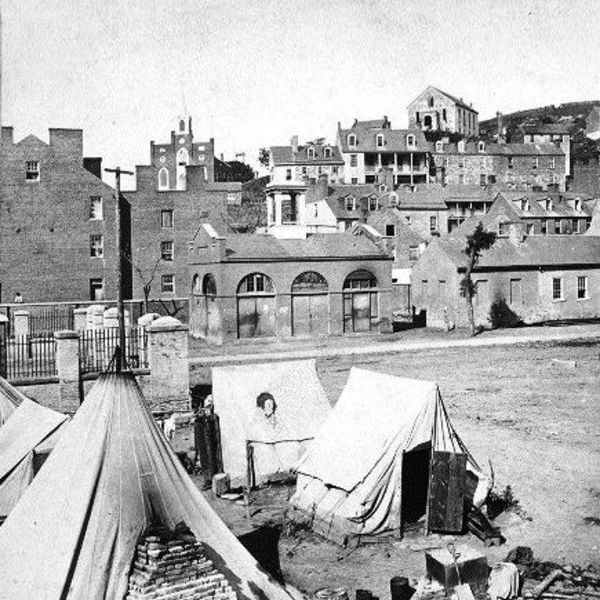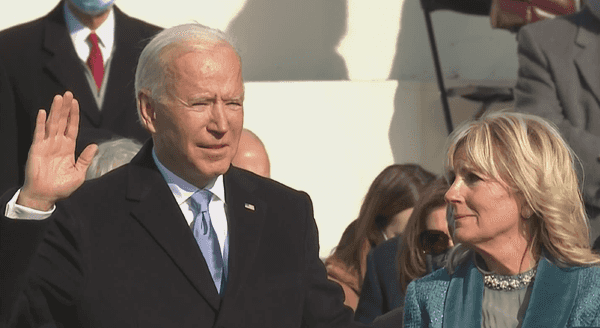From 1840 to 1860, both the South and North were thriving economically and creating their own ways of life. However, economic, political and social differences increased sectional division. Abolitionists, work force means and government decisions lead to slavery surfacing as a controversial topic. Slavery was becoming an increasing exacerbating force on sectionalism, feeding on regional differences. Also, abolitionist began making bigger impacts and government rulings hinted to conspiracies, causing the North and South to erupt in disputes. The United States was splitting apart, eventually succumbing to the Civil War. Slavery influenced the split, but the war pulled the North and South back together.
So was the war to end slavery or to unite America?
With the Industrial Revolution and new agricultural technology, the North and South were in an economic boom.
The North’s main source of economic growth came from factories, but the South stilled relied on agriculture. Cotton was a major cash crop since it was in such high demand from England who needed it to make cloth, and with the cotton gin, the South needed more and more slaves to tend to the fields. The South relied on the slaves as their work force, since farming was their way of life. Therefore, the South saw it as a threat to their way of life when the North became anti-slavery. As Southerners began to spread out on land to grow more cash crops, they needed slaves to spread with them so they could maintain their labor force. The North was against the spread of slavery, so this increased tension as the North tried to stop the spread, and the South fought for it.
Things got out of hand when the Kansas-Nebraska Act was passed.
This act divided the territory and allowed each state (Kansas and Nebraska) to determine if they were a free state or a slave state. Since it was above the 36/30 line when the South made it a slave state, it increased the spread of slavery along with the tension. Thus, violence between antislavery and proslavery states broke out, and fighting ensued. This is referred to as bleeding Kansas. Some argue for this to be the start of the Civil War, but nothing was really declared until the South seceded.
Conspiracies of rigged politics created tension between the North and South.
The North feared “slave power” and the democratic dominance in the government, while the south worried that the North had secret plans to outlaw slavery in the South. The South was fighting to increase slave states, and the North was trying to stop the spread of slavery. The Republican party formed in Wisconsin in 1854 as a result of the Kansas-Nebraska Act. Its purpose was to end the spread of slavery in the territories, not end it; consisting of free-soilers and antislavery Whigs and Democrats. Although it was the second largest political party, it remained a Northern sectional party — alienating the South with its success.
The Democrats position was supporting popular sovereignty, and even though President Buchanan stood for that, he was still weak in the South’s eyes. The weakness the South saw was Buchanan’s stand on the Dred Scott vs. Sanford case. The case started when Dred Scott sued the state of Missouri for this freedom, arguing that his residency on free soil, Wisconsin, made him a free man. This case eventually made its way to the Supreme Court, which ruled against Dred Scott because they did not view him as a U.S citizen, so he “had no right to sue in a federal court” (Newman 256). Congress did not have the power to take away personal property, and slaves were property to them.
Also, the people saw the Missouri Compromise as unconstitutional on the grounds that it excluded slavery from Northern territories. When President Buchanan was asked by Lincoln to reconcile popular sovereignty with the court decision, during the Lincoln-Douglas debates he said, “slavery could not exist in a community if the local citizens did not pass laws maintaining it” (Newman 257). These laws would be referring to slave codes. This event is later known as the Freeport Doctrine.
While he managed to win the reelection, he did lose southern support, because they thought he did not go strong enough against Lincoln. The decision in the Dred Scott case had made many Northerners apprehensive about the slave power, as they used to describe the belief that the government was rigged by it being mainly democratic slave owners, these conspiracies led them to vote Republican.
This switch in parties aided in the increased tension between the North and the South during The Election of 1860.
The Democratic party was falling apart, seen as the “last practical hope for coalition and compromise” (Newman 258), but their candidate, Stephen Douglas was blocked by angry Southerners and Buchanan supporters even though he was the most likely to win. The collapsing of the Democratic party made the Republican party stronger, and the South angrier. The country was further divided by the creation of other political parties, such as The Know Nothings (made up of Whigs) and the Constitutional Union party (formed by moderate Democrats). They wanted enforcement of laws and the constitution and for the Union to remain together. Even with these new parties the free states had enough electoral votes to elect a president without the Southern vote. Lincoln winning the election might have been the final straw to the South, because the December of 1860 a convention in South Carolina was held, they voted unanimously to secede. This happened in other Southern states such as Georgia, Alabama, Mississippi, Louisiana and Texas — all of which also made up the Confederate States of America.
During this time, abolitionist were making both positive and negative impacts on the antislavery movement.
Peaceful abolitionists like Fredrick Douglas and Harriet Tubman had positive influences towards ending slavery, whereas radical movements like Nat Turner’s and John Brown’s revolts could be counter intuitive.
Nat Turner’s revolt had adverse effects when his attack on white farmers led to the whites fighting back and killing the slaves, a closing conversation on antislavery. His views were carried on in other radicals; John Brown led a raid in Virginia to the federal arsenal at Harpers Ferry to get weapons to arm the slave revolts. This too back lashed when Robert E. Lee led federal troops and captured, convicted and hung them for treason after a two-day siege. While the North disapproved of his violent measures, the South saw it as exposing the North’s true agenda of ending slavery through slave revolts. This furthered the division between the North and South, because the South thought the North was attacking them and the North thought the South was not being reasonable and understanding the circumstances. They both held biased views about the other regions politics.
The creation of new political parties, economic differences and abolitionist movements created the tension and conflict between the North and the South. The factors brought up the controversy of slavery and whether it should spread to the territories or not. Through misconceptions, violence and disagreements the conflict spiraled into a war. Slavery linked all of the factors together resulting in the Civil War.





















